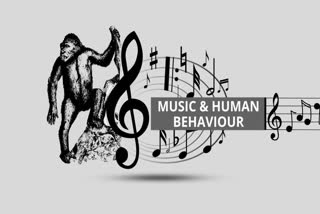New Scientist, UK: Our primate ancestors might have become "protomusical" to advertise their ability to perform death-defying leaps from tree to tree.
Why humans make and appreciate music is an evolutionary mystery. "Music is a hugely important part of our lives and often involves powerful emotions," says Edward Hagen at Washington State University. But he says we still don't fully understand why it has this hold over us.
David Schruth at the University of Washington and his colleagues have a new explanation. They say the roots of human music can be traced back to the branches of trees more than 50 million years ago when the first primates appeared. Fossil evidence suggests that those early primates moved around the forest canopy by leaping from branch to branch, a perilous way to travel that relies on extremely good hand-eye coordination and muscular control.
Schruth's team argues that early primates would have benefited if they could judge the acrobatic skills of their peers and identify suitable mates or avoid territorial confrontations with more accomplished leapers. Singing might have helped. Put simply, a primate that calls in an elaborate, musical way is advertising that it has fine control over its vocal cord muscles. Schruth's team says this might have convinced other primates that the caller also had fine control over its limbs.
Species that leap and swing the most tend to have more complicated calls. To test the idea, the team assessed the musicality – for instance, the tone and the rhythm – of 830 acoustic calls by more than 50 living primate species, and examined data on how often the species leap and swing from branches. The species that leap and swing the most tend to have more complicated calls, which the team dubbed as "protomusical".
Schroth prefers not to discuss the work until it has undergone peer review. Whether the research adds to our understanding of the origin of music depends on how we define the term, says Hagen, who wasn't involved in the study. "Some people would exclude what we see in primates and songbirds as music," he says. "Others, and I'm one of them, do see a continuity between human music and primate vocalizations."
Hagen doesn't think human music has a single, simple explanation. Last year, he and his colleagues argued that our human ancestors originally used music-like vocalizations in two ways: groups vocalised together to send a signal of strength and unity to intimidate outsiders, and mothers used solo vocalizations to communicate with infants. A different paper published last year presented yet another idea: that humans used music to forge social bonds.
All these ideas might be compatible, says Hagen. Protomusic could have evolved in primates both to attract mates and for territorial signalling. Later, as early humans began cooperating in larger numbers, protomusic might have been repurposed so it could attract rather than frighten outsiders, while also strengthening social bonds within groups. This would help explain how our music can stir such a range of emotions and why it is so much more sophisticated and complex than the songs of other species.
Also Read: Taming CRISPR
(c) 2021 New Scientist Ltd.
Distributed by Tribune Content Agency, LLC
